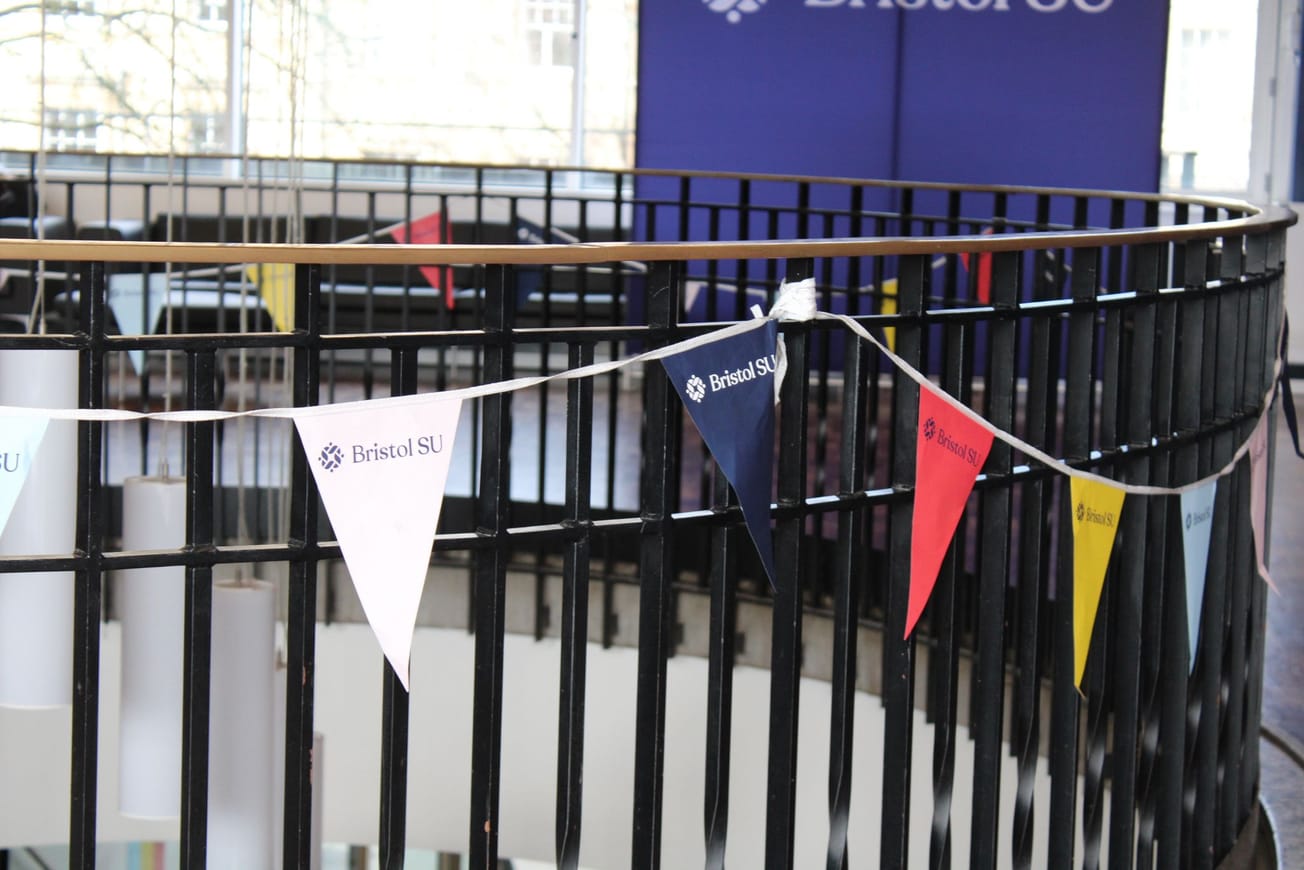By Anna Johnson, Fourth Year, English and French
Given that the UK is currently experiencing a financial recession, the graduate job market could be more challenging. While it is undeniably competitive, there is still room for optimism. On average, employers received 86 applications per vacancy for graduate schemes last year – this may seem daunting, but should not be cause for discouragement. Over half of UK job vacancies (57 per cent) in 2023 were at graduate level, indicating that students entering the workforce remain a valuable and sought-after resource.
October is flying by, and as the term advances and the days shorten, applications for summer internships and graduate schemes are beginning to open. Although not everyone may feel this pressure, it is common to experience feelings of overwhelm related to graduate anxiety. Epigram spoke with five graduates about their job-hunting experience after university and the advice they have to offer. If you’re ready to start your search for an internship or skilled job but aren’t sure where to begin, read on.
There’s no rush to land the perfect position immediately after university. Studies show that it can take graduates anywhere from three to eighteen months to secure a skilled, full-time job. While graduate schemes from top companies offer attractive starting salaries and strong job security, it’s a common misconception that most graduates enter these roles straight from university. In reality, only 11.4 per cent of graduates manage to land a corporate grad scheme position.
Epigram spoke to Katie, who graduated in 2023 and is now pursuing a master’s in health economics. Last summer, she successfully completed a summer internship with the Civil Service. However, when speaking to Epigram, Katie admitted that she ‘applied to over thirty summer internships and I got rejected from all of them’. Despite the challenging nature of the job market, Katie provided a sense of optimism: ‘The following summer, on a whim, I applied for the Civil Service internship, and it ended up being the only one I applied to. For whatever reason, they liked me. It just goes to show it is really the luck of the draw, and you have to persevere’.
she took the leap and quit her job, using her savings to travel: ‘It was scary, but so worth it’
Zhara wasn’t sure what she wanted to do when she graduated with a bachelor’s in Criminology in 2022. ‘I didn’t want to go for a grad scheme,’ she explains. ‘I knew it was the most secure option, but it was also the one that would make me feel most trapped in a single career path’. She wanted to pursue something she enjoyed while figuring out her long-term goals. With the experience of writing a food blog already under her belt, she decided to focus on social media content creation roles.
‘After applying to hundreds of jobs, I landed a position with a catering company as a social media and marketing assistant’, she recalls. Zhara emphasizes that even if you find a suitable job after graduating, you don’t have to stay in it if it isn’t fulfilling. After a year, she felt the role wasn’t challenging enough, so she took the leap and quit her job, using her savings to travel: ‘It was scary, but so worth it’. When she returned, Zhara decided to pursue a master’s in Broadcast Journalism at City St George’s, University of London. ‘It ended up being exactly what I wanted to do’, she notes, ‘but I never would have realised that right after graduating’.
If you find yourself in a similar position, feeling uncertain or ready for a change, the University of Bristol offers a wealth of resources to support you through the application process. From a CV checker to an Interview Simulator and an online skills bank, the Careers Service provides practical tools to sharpen your approach. These resources are designed to boost your chances and ensure you’re showcasing your skills in the best possible light to employers.
One resource that is often overlooked by students is the Bristol PLUS Award. If you’re able to demonstrate active involvement in extracurricular activities alongside your degree, complete a short online course and write a reflection on what you’ve learnt, earning the award is well within reach. Doing so not only enhances your skills but is also formally recognised on your degree transcript, giving you an edge when applying for jobs.
‘If you are eligible, you should definitely join the Bristol Mentors scheme’, former student Katie reminds us. ‘It gives you good connections for when you graduate. My mentor also showed me how to make my CV eye-catching because he used to work in recruitment’.
Equally worth exploring is Bristol’s SME Internship scheme, which offers a way to gain financial support while developing practical skills and real-world experience. The scheme not only strengthens your CV but also allows you to explore different career paths in a supportive environment. With the right company, it may even lead to long-term employment after the internship is completed.
While it may be disheartening for introverts, extroversion plays a significant role in the job hunt. Even if you’re unsure about a specific role or sector, connecting with others can open doors. LinkedIn is invaluable for building and maintaining these connections, especially if you lack firsthand family connections in your desired field. By keeping an open and active profile, you significantly increase your chances of being noticed by recruiters. Don’t be afraid to reach out to professionals in relevant roles at your desired companies. Just ask politely for five minutes of their time to ask for some insights about their role and career path.
However, it's important to keep in mind that the competition is fierce, and rejection isn’t always personal. The number of employers now using AI to assess possible recruits has tripled to 28 per cent in the last year. Once your application is perfected using the university’s CV tools, send out as many tailored, personal cover letters and CVs as possible.
Having said this, it is important to remember that oftentimes, quality applications outweigh quantity. While the spreadsheet approach works well for some, it can encourage a cannon-fodder attitude. A more effective technique is five quality, personal applications. ‘I was applying to jobs that were out of my reach,’ explains Dan, a Maths and Philosophy graduate, ‘I didn’t know what was normal’.
Dan’s top advice is to ‘be realistic about your options. You really don’t have to get the best job in the world after you graduate’. He views his current position in Accounts, alongside a part-time master’s program, as a valuable stepping stone. After six months of work experience, he notes, ‘My LinkedIn blew up and I was getting contacted by recruiters just because I had been in a permanent role for a while.’
This focus on realistic expectations is especially relevant during final year, which can be quite busy, making it difficult to find time for job applications. Isabelle, a recent History graduate, waited until she finished university to apply for jobs due to difficulties balancing the application process with her studies. ‘Don’t be precious about applications’, she urges, ‘Apply to anything and everything you might be remotely competent for’.
Single-use costumes: The fastest fashion?
‘I just felt really overwhelmed’: Understanding the psychology behind procrastination and how to tackle it
Megan, a French and Italian graduate, explains that ‘I would go through phases of doing a lot of applications in a week and then I was too stressed or avoidant about rejections for a few weeks and the cycle would repeat’. Lizzie, who graduated from Bristol in 2020 and successfully secured a place in the Civil Service fast stream, offered a useful solution to this: ‘You just have to treat job hunting like another module […] Cast the net wide, don’t be afraid of rejection and remember you only need one application to be successful’.
As Zhara says, ‘This is the perfect age to try things you won’t have the opportunity to do later in life’. Focus on learning through every experience – whether it’s an internship, a gap year, or volunteering. Take advantage of the university’s resources, nurture your connections and trust that even rejection can steer you toward the right path. The right role will come, even if it isn’t straightforward to get there.
Featured Image: Epigram / Nel Roden
What are your experiences with applying for graduate jobs?









